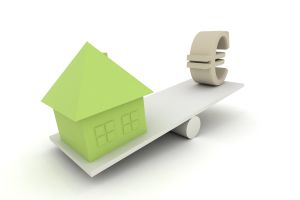
Types of Mortgages
Every mortgage is a loan which is secured against your home, however, there is a huge difference in interest rates and repayment styles between different types of mortgages. Poorly selected mortgage can get you into serious trouble which is why it is crucial to distinguish between different types of mortgages before you sign any papers.
In the UK, you will have the option to choose between the following types of mortgages:
(Standard) Variable rate mortgage. This is one of the most common types of mortgages and is characterized by adjustment of interest rates according to the conditions on the market. The rate typically moves up and down according to the changes of base rates by the Bank of England.
Fixed-rate mortgage. This type of mortgage actually is not what it sounds like. Although its name suggests that your rate is predetermined and does not move up or down as soon as the market conditions change, you pay a fixed rate only for a certain period of time. Afterwards, the fixed-rate mortgage is basically transformed into the variable rate mortgage.
Discount mortgage. If you decide for this type of mortgage, you will get a discount on your variable rate for a fixed period of time. However, it is a type of variable rate mortgage and as a result, your monthly rate can either rise or fall depending on how your lender changes the rate.
Tracker mortgage. This type of mortgage is very similar to variable rate mortgage because it follows the base rates of the Bank of England as well. As soon as the Bank’s interest rate rises, your monthly rate increases as well or vice versa.
Cap and collar mortgage. Just like the variable rate and tracker mortgages, the cap and collar mortgage “tracks” the market conditions as well but it has a fixed upper and lower limit which means that your monthly rate cannot raise above or fall below a pre-set limit.
Flexible, current account and offset mortgages. These types of mortgages give you more freedom in repayment of your loan by allowing you to pay less one month and make up in the next, link your savings or current account to your mortgage and pay a lower interest rate, pay off your mortgage early without penalties, etc.
Interest only mortgage. According to this type of mortgage, you are obliged to pay off only the interest rate on your loan but not the capital. The latter is repaid only at the end of the mortgage period but how you will be able to repay it is completely up to you. This type of mortgage is cheaper than the traditional repayment mortgages, however, you need a well thought through plan in order to be able to repay the capital.
Every type of mortgage has its advantages and disadvantages. Which one to choose depends on your personal preferences and financial condition although you are also recommended to check the offer at multiple lenders because the terms and potential penalties vary greatly from one lender to another.